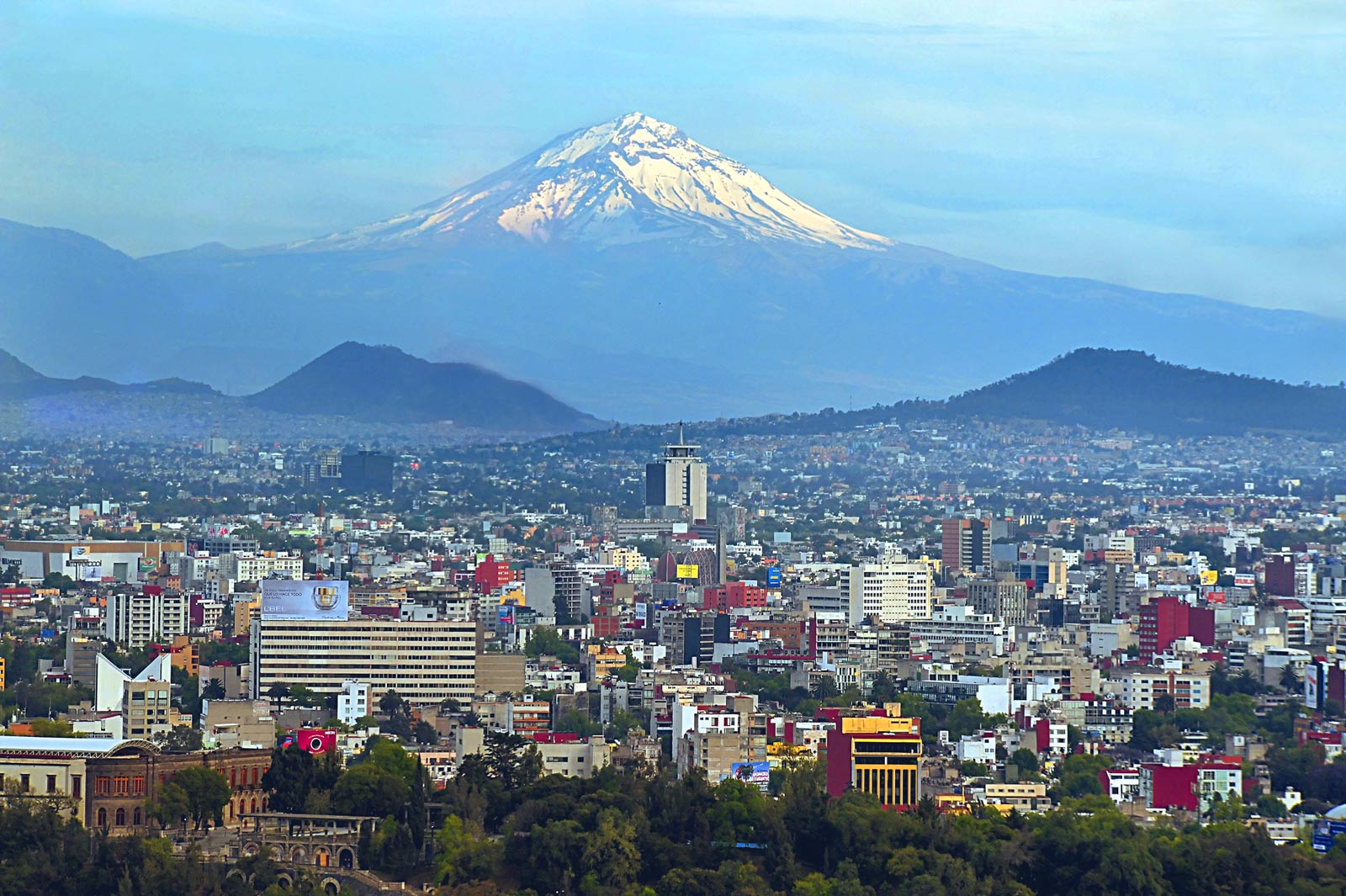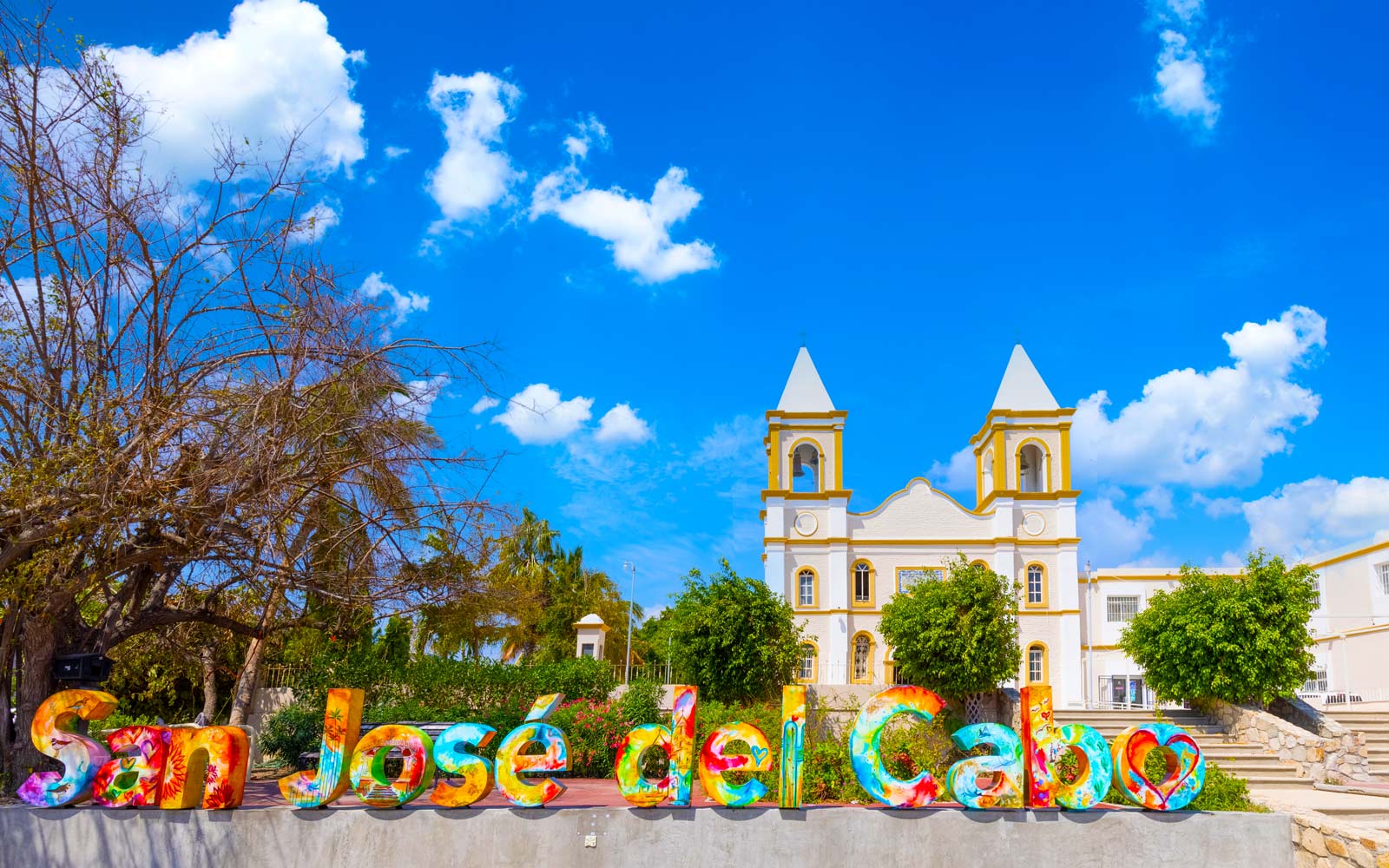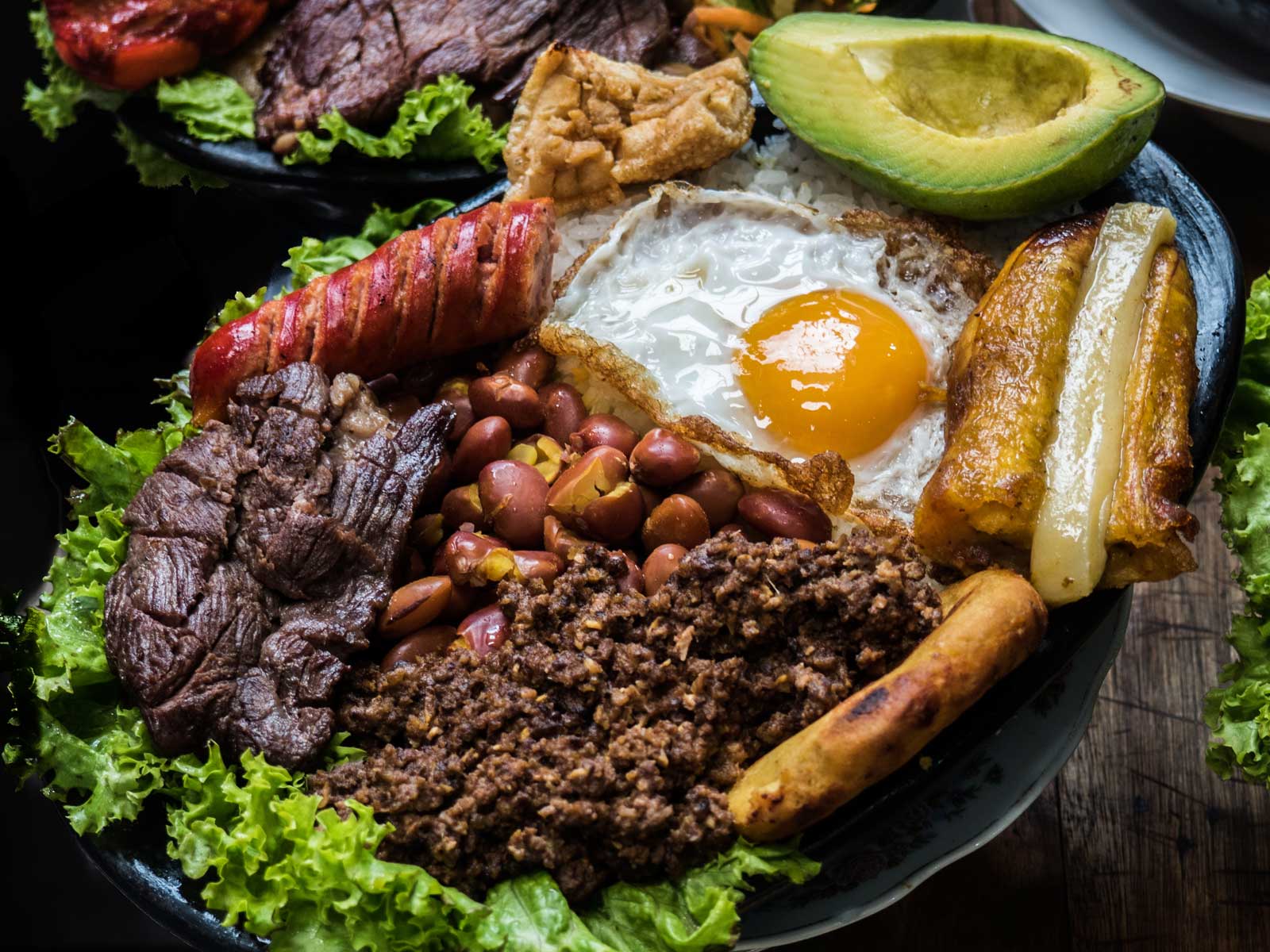[ad_1]
It’s impossible not to love the sheer scale of Mexico City. The Mexican capital is one of the world’s largest cities. It’s a place of dense population, street food, architecture, and fascinating community dynamics. If you want to experience Mexico as a tourist, head to Cancun. If you want to experience Mexico as a society, head to Mexico City. The history is astounding, with day trips to the Teotihuacan Pyramids and countless museums like Chapultepec Castle in the city center. There’s no doubt about it: Mexico City is an incredible destination for passionate travelers.
Is Mexico City Safe to Visit?
However, many people ask, “Is Mexico City safe?” How do you go about staying safe in Mexico City? As the largest city in Mexico, it’s no wonder people worry about safety levels. Mexico City is a big city, and like all big cities you must take standard precautions to avoid petty theft and crime. But it also has some specific crime rates to note, so it pays to research first before visiting Mexico City.

Staying safe in Mexico City doesn’t have to be something to worry about. In this guide, we’ll give you the rundown on the question of ‘Is Mexico City safe?’ but also guidance on how to make it a safer experience. Statistics speak for themselves, but there’s a lot within your control. Get ready to take a more proactive approach to staying safe while visiting Mexico City.
Short Summary

Mexico City is generally safe, but it’s important to say that crimes do occur throughout the city. Let’s give you an overview of safety in the city to start with.
Usually, non-violent and petty crime is in touristy areas, like the Centro Historic, which ranges from pickpocketing on public transportation to more serious mugging incidents. The city center has some of the safest neighborhoods. If you stick to these ‘safe’ areas, you can stay safe in Mexico City. For instance, avoid carrying too much cash, walking alone at night, and not leaving drinks unattended.
The tourist areas have a good police presence, which deters violent crimes. Mexico City is reasonably safe if you stick to the daylight hours and specific neighborhoods. You can have a wonderful time so long as you practice common sense.
On the other hand, the non-tourist areas and neighborhoods associated with cartels can be dangerous. Examples include Tepito, which is home to La Union Tepito, a cartel organization involved in human trafficking and extortion. Even police presence in Tepito is unhelpful, with some officers taking bribes to turn blind eyes to crime.
Mexico Travel Advisories

Most visitors have a safe trip to Mexico City. It is a good idea to stay on top of general travel advisories, which you can find on government websites like Gov.UK, Travel.State.Gov for the US, and Travel.gc.ca for Canada. When embarking on solo travel, you should be particularly mindful of these when loved ones back home could lose contact with you or not be aware of your movements.
In this section, we’ll look at some of the 2024 travel advisories for Mexico as a whole. Remember to look at your government’s guidance for advice that is as current as possible. These advisories can change daily, for instance, telling you to exercise increased caution over political rallies or gang-related tensions.
Here are a few to keep in mind as of 2024:
Avoid the states of Colima, Guerrero, Michoacan, Sinaloa, and Tamaulipas due to the increased risk of crime and kidnapping. Be mindful of the lingering impact of 2023’s Hurricane Otis around Acapulco. Avoid Tijuana and sections of the Baja California Sur peninsula due to rising tensions. Avoid Chihuahua due to current high crime rates. Avoid traveling at night. Be alert even in tourist areas on the Mayan Riviera, like Tulum, Cancun, and Playa del Carmen.
And now that the general Mexico advice is out there, what about Mexico City specifically?
Mexico City’s Current Safety Situation

As we said, safety can change day by day. It depends on things like political movements and social events. Elections can spark chaos, even in a ‘safe destination’. And riots or incidents can spark cartel violence. So, what is Mexico City’s current safety situation right now? Regarding staying safe in Mexico City, knowledge of current affairs is key.
Currently, Mexico City has no elections, controversial political scandals, or warring cartels in tourist areas. There are no inflammatory events, so this is a safe time to visit Mexico City.

However, those visiting the city in June 2024 should remember that it is the period of the Mexico General Elections. This is a time when tensions can rise with protests and unrest. If you are visiting during this period, it’s wise to monitor the news and know that you may need to adjust your trip and avoid protesting crowds while out.
You should also monitor the news for any outbreaks of rival cartel violence and take standard precautions at all times. Several cities in Mexico require extra care for tourists. Still, Mexico City is the country’s largest city, so it naturally has more risks and petty crime.
Best Practices For Staying Safe in Mexico City

When you visit Mexico City, many ways to stay safe are dictated by you and your behavior. Of course, random incidents that are totally out of your control can occur. But as a general rule, you can avoid incidents by proactively staying safe in Mexico City – so why wouldn’t you?
In this section, we’ll introduce you to the top seven practices to stay safe in Mexico City. We’ll cover everything from tap water to money belts and everything in between. These are the vital tips you will want before visiting Mexico City.
1. Avoid Drinking Tap Water
First things first, make sure you remember to avoid drinking tap water. Tap water in Mexico City is not suitable for drinking. This goes for brushing your teeth and cooking; just buy bottled water and look for recycling points to ensure plastic is reused. The last thing you want is an upset stomach or a serious waterborne disease.
As a general rule, when traveling through Mexico, tap water is not considered safe for consumption. It often does not get sent through filtration or purification systems, meaning there are bacteria in the tap water system. Tourists should not drink tap water, and even locals abide by this practice – instead, drinking bottled water.
The flip side to this is that you want to drink plenty. Staying hydrated is really important, especially in Mexican summers. Don’t drink tap water, but make sure that you drink plenty of bottled and recycle plastics accordingly.
2. Wear a Money Belt
Money belts are fantastic. A popular way to reduce the risk of petty crime and pickpocketing is to wear a money belt. These lie flat around your stomach under your clothes. Then, if you are a victim of pickpocketing or mugging, you can keep your valuables undetected.
Things like money belts are just common sense. You can also leave valuables in your hotel safe and avoid bringing lots of money out and about while sightseeing. Some people carry decoy purses or cards, too – which is a great idea should you be targeted.
3. Learn Basic Spanish
Learning a little Spanish is a great way to stay safe in Mexico City. Mexico City is full of action and is a fast-paced tourist destination. Learning a bit of Spanish, be that ‘por favor’ or some simple directions or phrases, can make a huge difference.
When communicating, you can avoid high-risk areas and take advice from helpful people you meet around the city. It also prevents you from hanging out and looking vulnerable on your phone or simply struggling to communicate. The more capable you are and the less distracted or confused you look, the less likely you are to draw attention to yourself. And this means a lesser chance of being targeted by criminals.
4. Learn the Safe Neighborhoods
Learning safe neighborhoods should be a vital practice when visiting any city. In Mexico City, though, this is especially important, as some neighborhoods are rife with drug cartels. Even locals don’t venture into specific areas, so when you add higher risks, such as solo travel and carrying valuables and obvious luggage, you can see why knowing your neighborhoods makes a safety difference.
A few examples of neighborhoods to avoid in Mexico City are Tepito, Ciudad Neza, and La Merced Market. The neighborhoods that are really safe and popular among travelers are Roma, Centro Historico, and Condesa.
5. Consider Group Tours
Another top tip is related to solo traveler experiences. If you are a solo traveler and need help tackling Mexico City, join a group tour. There are so many capacities in which you can do so – whether you book a single-day tour, a fully guided multi-day trip, or a walking tour around the city center. You could spend your time in a group the whole time or your first day in a group to get a feel of the city. Think of this option as a safety blanket.
One thing to consider as a solo female traveler is that it’s wisest to head out at night in a group. So, if you are looking to do some after-hours exploring, you can join a guided pub crawl.
6. Have Great Travel Insurance
This is a big one. Travel insurance can make or break your trip if the worst occurs. It covers everything from hospital treatment to gear cover and flight cancellations. Brilliant, right? Travel insurance is one of the best things to remember when preparing a visit to Mexico City.
Insurance costs as little as $5 or so for a few days and can cover you for millions in damages. Shop around and see what policy best suits you.
7. Pick a Different ‘Party Destination’
Finally, while Mexico City has excellent nightlife, you can pick a different party destination. You could visit somewhere like Cancun. Or you could head elsewhere outside of Mexico – heading to US cities. If you want somewhere to enjoy late-night partying in a safer environment, reconsider.
Tailoring your activities to a destination is a great practice when traveling in general. If you want to take fewer safety precautions in terms of nightlife, visit Mexico City for its daytime activities and pick somewhere else for its nightlife.
Transportation Safety

As one of Mexico’s major cities, you’d need public transport at some point. There is a metro system and buses. But is public transportation safe in Mexico City? We’d say generally it is safe, as long as you are aware of pickpockets. Exploring Mexico City by public transport is great for your budget, but you should be mindful of safety and the time you use it.
Public transport in Mexico City is rife with petty theft. Tourists are mainly targeted because they are less familiar with theft tactics and often carry so much luggage that they are vulnerable to pickpocketers or bag snatchers. Reduce the amount of luggage you take on public transportation and always ensure valuables are secure – ideally hidden under your clothes in a money belt.
Another thing to remember when using public transport in Mexico City is that it’s more dangerous at night. You can use most transport safely in daylight hours with some common sense. However, we’d recommend skipping Mexico City’s public transport system at night. Opt for a licensed taxi in a group instead. The safest ones are called Sitio Taxis.
If you use public transport in Mexico City, try to know beforehand how they run and where you are going. This way, you won’t flounder at stations looking like a sitting duck for petty crime. Here’s an overview of the city’s public transportation system:
Metro
The metro runs until midnight seven days a week for journeys as cheap as 5 pesos a ride. There are twelve lines, and the trains have around nine cars, which remain busy in peak hours. You buy tickets and enter through turnstiles. Google Maps should tell you which route to take pretty effectively, and downloading offline maps or screenshotting your directions will help you avoid lingering in stations. Are you a solo female traveler? Keep an eye out for children and female-only carriages in peak hours – which tend to be the first three cars.
Buses
The buses are a bit more hassle than the metro in Mexico City. However, some brilliant female-only buses help prevent harassment in crowded buses. These are ideal for solo female travelers in Mexico City. The bus system is also really budget-friendly.
If you would rather opt for taxis, consider a few different categories of taxis. To stay safe when using taxis rather than public transport is equally important. So keep these three taxi types in mind:
Turismo taxis
Turismo taxis are unmarked luxury vehicles. These are typically booked as transfers online through platforms like Viator and Get Your Guide or affiliated with hotels. Turismo taxis might be unmarked, but they are still safe and associated with formal companies. Because most are booked in advance, you pay premium prices.
Sitio taxis
Sitio taxis are marked taxis and are sent out by radio dispatchers. These are your traditional taxis. They are a little more expensive than your metered and libre taxis. However, the sitio taxis are safer because they are more regulated. Sitio taxis focus on guided experiences and transfers, with a more personable service than a quick A to B drop-off.
Red cabs and libre cabs
These taxis rely on a meter and are the most basic taxis you can get. It can work out budget-friendly, but be aware that Libre taxis are less regulated than the sitio and Turismo options.
Food and Drink Safety in Mexico City

You are visiting Mexico City – of course, you will try some of the delicious things to eat and drink. In fact, a food tour is one of the best things to do in the city. The downtown area especially is full of street vendors selling delicious street food. And you can sample Mexican food like tacos as well as tasty cocktails.
Food and drink in Mexico City are super tasty. So, what should you consider from a safety perspective?
The first major consideration should be tap water. The tap water in Mexico City is not safe. It is often not filtered properly, meaning bacteria is left in the water, which you then drink. To avoid this, be mindful of eating fruit and vegetables washed in non-bottled water. You should also avoid ice in drinks.

In 2014, authorities made it a requirement that restaurants in Mexico City serve filtered water to guests for free, which has helped. Many more formal restaurants use filtered water when cooking and preparing dishes. But it’s still essential to watch these things to avoid getting sick. It’s your choice how hesitant or risk-taking you’d like to be regarding the age-old tap water debate.
Finally, eat at places with good reviews. If there’s a restaurant repeatedly making everyone sick, you can bet Google will hear about it. People are quick to leave scathing reviews, so make sure that you check out Google reviews before dining somewhere. You can also do a quick in-person scan – in general, the busy restaurants are the ones where people aren’t getting sick.
Health and Medical Safety in Mexico City

We’ll answer this section in two parts. First, we’ll look at the general health risks in Mexico that you should be aware of when staying in Mexico City. Then, we’ll look at the specific health and medical risks of staying in Mexico City itself.
Generally speaking, you should be aware of two viruses in Mexico: Zika and Chikungunya. The Zika virus is spread by mosquitos and causes a rash, headache, and joint pain, often accompanied by red eyes. It is unpleasant but not fatal, although it can carry risks to pregnant women. The Chikungunya virus is also spread by mosquitos, causing similar symptoms. It can also cause chronic chikungunya arthritis, though, which is long-lasting. Mexico also has dengue fever, which is spread by mosquitos and causes flu-like symptoms. Dengue fever can worsen, causing shock and internal bleeding, so early detection – and, ideally, prevention – is vital.
As you can see, the main cause of these three medical concerns in Mexico is the presence of infected mosquitos. The risk of mosquitoes in Mexico City is generally considered low, as there’s no great body of water and areas of undergrowth. But you can still bring mosquito repellent to be on the safe side.

So, what are Mexico City’s specific concerns? Well, the biggest health and medical risks in Mexico City are related to its pollution. The city has high levels of air pollution, which can aggravate respiratory and heart conditions. You can take preventative steps like wearing masks. Or, if you struggle with existing conditions like asthma, ensure that you bring all personal medication and treatments.
Be mindful of unfiltered and impurified water in Mexico City, too, which can cause bugs like Cyclospora or salmonella. The best way to avoid the dangers of unfiltered water in Mexico City is to not drink unfiltered water. Always buy bottled water and use it to drink, brush your teeth, cook, and make hot drinks. The last thing you want is chronic diarrhea when trying to enjoy sightseeing in beautiful Mexico City.
Is Mexico City safe health-wise? It is safer than most coastal areas and places thick with vegetation, where mosquitos thrive. You are less at risk of Zika, Chikungunya, or dengue fever exposure. However, you can still bring mosquito repellent, just in case. You should primarily be mindful of waterborne diseases and air pollution, especially if you are predisposed to respiratory illnesses like asthma.
Is Mexico City Safe for Solo Travelers?

Mexico City isn’t the safest city for solo travelers. However, if you are experienced, savvy, and willing to prioritize safety, you can visit the city safely as a solo traveler.
The main issue for solo travelers in Mexico City is that they are more at risk of petty and violent crime. Solo travel naturally leaves you more vulnerable. For instance, if you look at Google Maps, nobody focuses on protecting your bags. Or if you are walking through an unsafe neighborhood looking at Google Maps to find a way out, there’s nobody to pay attention to what’s happening around you. Safety in numbers is a legitimate safety net you often cast aside on a solo trip.
That’s not to say it can’t be done, though. Mexico City can be great fun for solo travelers, like any major city. We’ll first look at solo travel and then concentrate on Mexico City for solo female travel.
Generally, solo travel is safe if you stick to safe neighborhoods and minimize going out after dark alone. Similarly, if you use common sense and pick marked taxis, you should be fine getting around the city. Little things make a big difference, though, like choosing well-located accommodation and learning directions before you leave your hotel so you aren’t glued to Google Maps.

If you stay at a hostel, you can soon meet new people and join forces with other travelers to head out as a group anyway. We advise staying in a hostel or organizing group tours and experiences. If you arrive in Mexico City on a solo trip and feel uncomfortable, you have a safety blanket and the option to enjoy the city in a group.
But what about solo female travelers? Is Mexico City safe for solo female tourists? We’d say yes only when you are taking precautions. While the city is generally safe for solo female tourists, many activities and ways of getting around are safer in groups. For instance, you can ride in the female-only carriages on the Metro, but it’s safer to travel with a group. Similarly, it’s definitely not safe for a solo female tourist to walk around much of Mexico City after dark. If you want to make it safe, you will spend your time sightseeing during the day around the city center, taking guided day trips to explore other attractions.
The question is not so much ‘Is Mexico City safe for solo female tourists? ‘ but how you are planning on visiting the city. Are you going to be happy making compromises to make your experience safer? We wouldn’t call Mexico City safe for solo female tourists if you want to go out alone and have a carefree experience. If this is the case, consider booking a group tour instead so you can relax a little and enjoy your getaway more.
Is Mexico City Safe: FAQs

Now that you know all about staying safe in Mexico City, it’s time for some FAQs. As a major city, it’s helpful to compare Mexico City to other cities that may be more familiar. Often, it’s the fear of the unknown that can provoke more anxiety.
In this section, we’ll provide a better insight into whether Mexico City is safe by using comparisons and more general perspectives.
Is Mexico City safer than New York City?
Mexico City is marginally more dangerous than New York City, but not by much. Mexico City and New York City are similar in that crime is concentrated in specific areas. Both experience gang-related violence. If you know which neighborhoods to avoid, both New York City and Mexico City are relatively safe.
Is Mexico City safer than Los Angeles?
Mexico City is more dangerous than Los Angeles. As a whole, it is muggings that make Mexico City more dangerous, with more street robbery incidents than in Los Angeles. However, Mexico City is still safe in the safer neighborhoods and with common sense exercised.
Is Mexico City cheap or expensive?
Mexico City is one of the more expensive cities in the region. But with that said, its affordability is still miles above that of EU or US cities. Living costs – including rent – are around 60% lower for those living in Mexico City rather than New York City. And for those just visiting, you are looking at a $20 average for a meal in New York City versus a $9 average for a similar standard restaurant in Mexico City.
Is Mexico City nice to live in?
Yes, Mexico City is a nice place to live for expats. The city is full of things to do, providing great affordability and a fantastic job market. The tasty Mexican food is another huge plus. And it’s no wonder that a large percentage of people are relocating to the Mexican capital.
Should you Travel To Mexico City Now?

As you can see, staying safe in Mexico City is mostly easy. For such a big city, the risks are minimal. Just be mindful of public transportation, have good travel insurance, use common sense, and take extra care if you’re a solo traveler. So, is Mexico City safe? For the most part, we’d say yes. Mexico City is safe when you proactively take the necessary safety steps.
It is easily one of the best places to visit in Mexico. But that’s not stopping you from venturing to other small towns and other cities after you visit Mexico City. Check out the cenotes on the Yucatan Peninsula and Mexico’s incredible beaches. We advise using Mexico City as a launchpad to experience even more of the region.

The best way to stay safe in Mexico City is to do your neighborhood research. Take out great travel insurance and take standard precautions to stay safe. Take particular care if you are a solo traveler, especially a solo female traveler.
You can enjoy amazing food and fantastic sightseeing in safe neighborhoods with plenty of tourists. It’s equally important to remember that Mexico City is a wonderful experience. It has a historic center, ancient city ruins, and delicious cuisine.
Plan your travels to Mexico with these resources
[ad_2]
Source link




